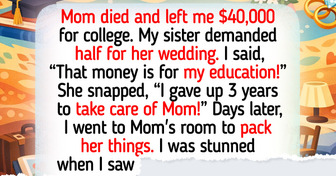She will come to realize who truly loves her.
My Stepdaughter Banned Me From Her Wedding to Make Her Biological Dad Happy
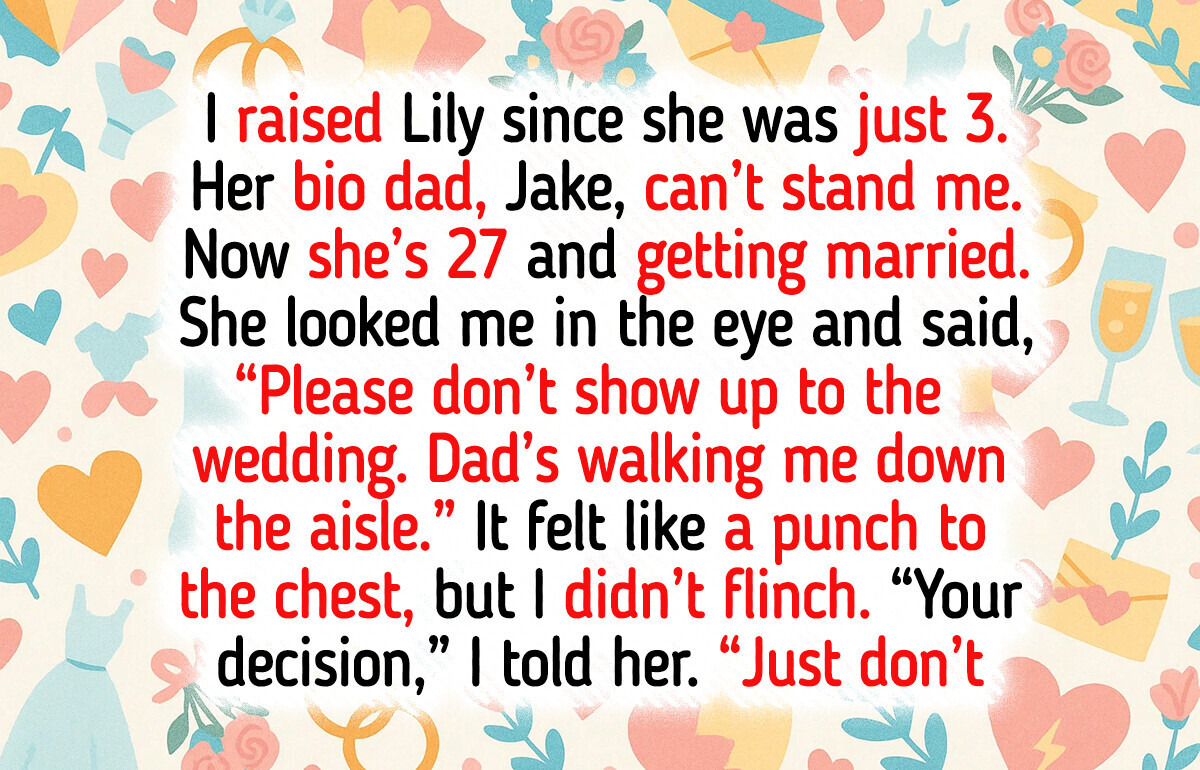
Greg, 60, recently shared an emotional—and, to be honest, jaw-dropping—letter with our team that left a lasting impression on everyone who read it. In his message, he revealed the painful moment when his stepdaughter, the girl he had lovingly helped raise since she was just 3 years old, asked him not to come to her wedding. Why? To avoid upsetting her distant biological father.
After a lifetime of being there for her—quietly, consistently, and without asking for praise—Greg was suddenly told he had no place in one of the most important moments of her life.
But instead of lashing out or falling apart, Greg’s unexpected response left everyone speechless—and what followed took the story in a direction nobody could have predicted.

Here’s Greg’s letter:
Dear Bright Side,
My name is Greg, and I’m 60 years old. I’ve been a part of my stepdaughter Lily’s life since she was a toddler, just three years old when I met her. Her biological father, Jake, can’t stand me. Over the years, he’s dipped in and out of her life, mostly absent. He didn’t even bother to remember her birthday most years.
I’ve been there through it all. I showed up for every school meeting, helped her get into college, bought her first car, and supported her in every way I could. Lily and I have always shared a strong bond—or so I thought.
When she got engaged at 27, I was ready to give her the world. I offered to pay for the wedding, the dress, the venue—anything she wanted. But then, out of nowhere, she sat me down one evening and looked me in the eye and said, “Please, don’t show up to the wedding. I think it’s best if you don’t come to the wedding. My biological dad is walking me down the aisle, and I don’t want any tension.”
That hit me like a punch in the chest. Still, I kept my composure and told her, “That’s your decision. But if Jake is the one you’re calling your real dad now, then just don’t expect me to handle the planning and expenses. I’ll step aside. Let’s see how much he’s willing to invest.”
She didn’t argue. Just nodded.
Fast forward to the week of the wedding—Jake disappears without a trace. No texts, no support, nothing. We later found out he had taken off to Hawaii with his new girlfriend and cut off all communication.
The night before the ceremony, Lily called me in tears. I showed up. I walked her down the aisle. But something had changed.
She said she was sorry. And I told her I forgave her. But deep down, I can’t shake the feeling that I was never truly seen as her dad. Just a stand-in. A backup.
I’m struggling to move on from what happened. I still see her decision as a betrayal. How do I find peace with this?
—Greg"
Thank you, Greg, for your letter to the Bright Side editorial team. Your honesty, emotional restraint, and integrity in a deeply painful moment reflect not only your strength but also the complicated realities of step-parenting.
Many stepparents will see themselves in your story and feel seen because of it. Below are some practical pieces of advice that might help you as you move forward and rebuild trust with Lily—and perhaps even with yourself.
Rebuild trust with small, consistent actions.

After emotional rupture, especially in parent-child dynamics, trust isn’t repaired overnight. Continue to show up for Lily in subtle, non-pressuring ways—texts, check-ins, small acts of support. These quiet gestures matter more than grand apologies.
Validate your own feelings without guilt.

You experienced rejection, and it’s valid to feel hurt, even if you chose not to lash out. Many stepparents suppress their emotions to avoid adding to family tension, but long-term emotional health depends on acknowledging their own pain. Give yourself space to grieve the temporary break in your relationship.
Establish clearer boundaries going forward.

You have the right to set emotional and logistical boundaries, especially around finances and involvement. Being supportive doesn’t mean being endlessly available or financially obligated when respect isn’t mutual. Boundaries protect relationships from building silent resentment.
Consider family counseling to rebuild connection.

Rebuilding trust and emotional safety after a betrayal or misunderstanding may benefit from a structured environment. A few sessions with a family therapist could help both you and Lily explore your expectations, past disappointments, and paths forward. It also sends a message that the relationship matters enough to invest in.
Don’t let this define your sense of worth.
Recently, a 63-year-old single mother poured her heart out in a story that shattered us. She raised her daughter with everything she had—love, sacrifice, grit—and now, just as her child is about to graduate high school, she’s being asked to stay away. The reason? Not conflict. Not distance. But shame.
This isn’t just a story about parenting. It’s about aging, unconditional love, and the heartbreaking clash between generations. It’s about what happens when a mother’s lifelong devotion is met with teenage embarrassment—and whether love means stepping back or showing up anyway.
Comments
If that was me, i would have refused to turn up after being told not too attend.
Related Reads
I Gave My House to My Son — He Betrayed Me in a Horrific Way
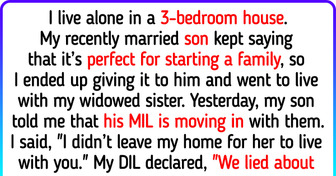
I Canceled My Wedding After Overhearing What My Fiancé Said Behind My Back

12 People Who Could Give Masterclasses in Romance

My Dad Refused to Come to My Wedding, but I Still Asked for the Gift

I Refused to Quit My Career After They Hired a Gen Z to Replace Me
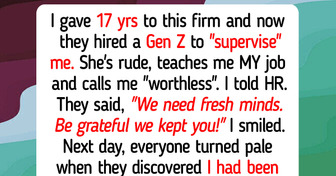
10 True Stories With Endings So Wild, Hollywood Couldn’t Write Them Better

My Neighbor Refused to Help My Autistic Son, She Wasn’t Ready for My Revenge
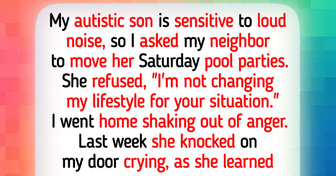
10 Bosses Whose Unrealistic Demands Led to a Disaster
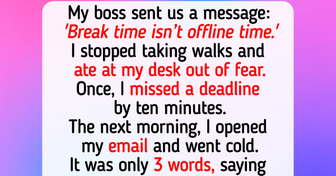
My Parents Told Me I Didn’t Deserve an Inheritance—I Made Them Regret
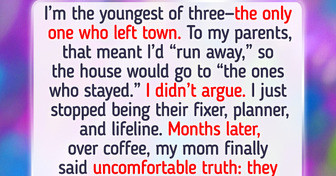
I Found Out My MIL Was Sabotaging My Gender Reveal—Now I’m the Family Villain
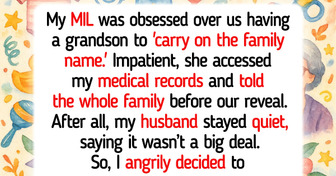
12 Stories That Prove Kindness Is the Strongest Armor
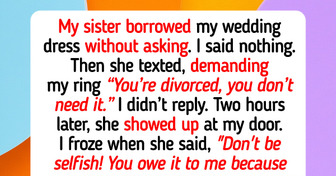
I Refuse to Spend My College Fund on My Stepsister’s Wedding, She’s Not Even My Real Sister
